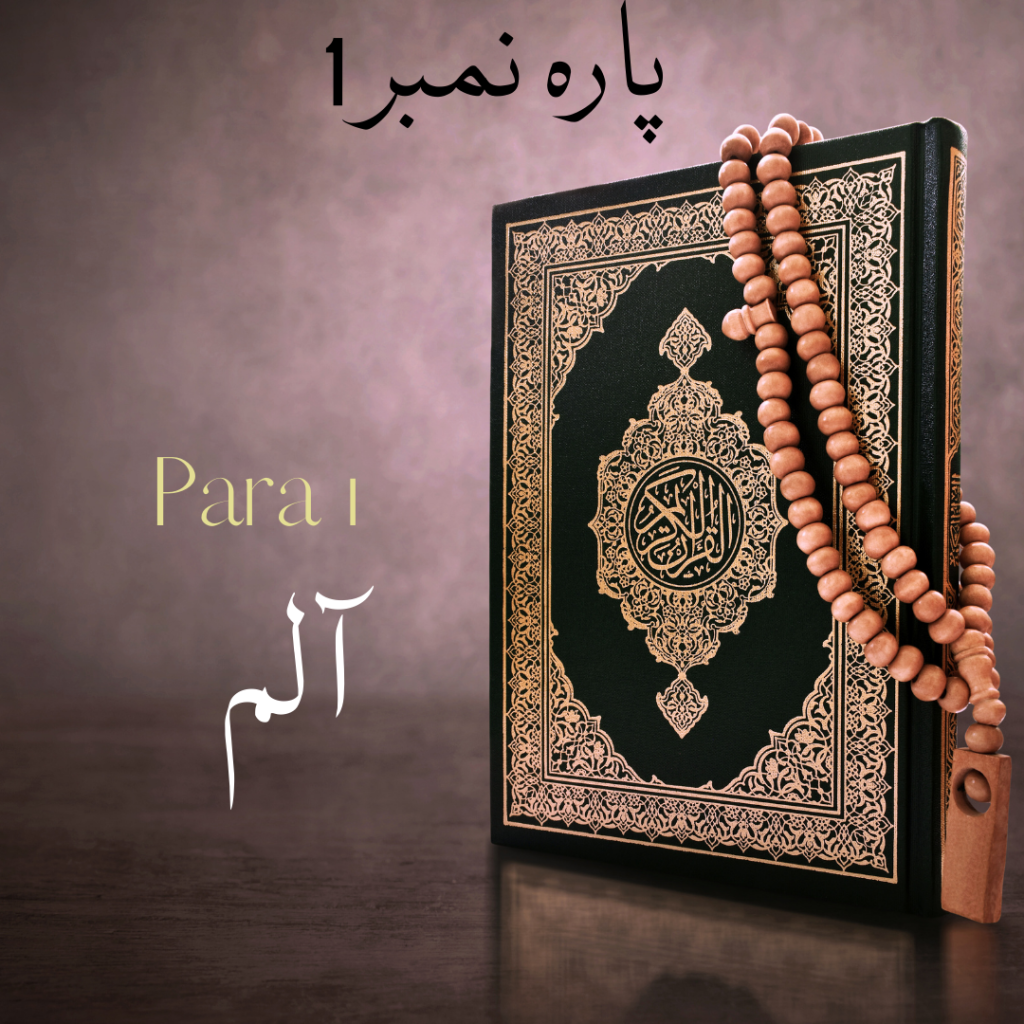Read Quran Juz 2 online
Juz 2 of the Quran consists of Surah Al-Baqarah, verses 142 to 252. The 2 Juz Quran delves into various aspects of faith, guidance, and the relationship between God and humanity. Al Quran para 2 covers themes such as the importance of steadfastness in faith, the significance of prayer, the concept of forgiveness, and the guidance provided by Allah for humanity’s moral and spiritual growth. Additionally, it addresses the challenges faced by the early Muslim community and provides guidance on dealing with adversity while maintaining faith and righteousness.
Topic Covered in Quran juz 2
Al Quran Juz 2 covers the following topics:
- The alteration of the Qibla direction is discussed in verses 142 to 145 of Surah Al-Baqarah.
- The verse “لَّيْسَ الْبِرَّ أَن تُوَلُّوا وُجُوهَكُمْ” (Surah Al-Baqarah: 177) is known as the Verse of Righteousness (Ayat al-Bir). It encompasses various aspects of beliefs, worship, transactions, societal interactions, and ethics in a general sense. Further elaboration on these topics is provided in the subsequent sections, referred to as the “ابواب البر” (The Chapters of Righteousness):
- Sa’i between Safa and Marwah during Hajj
- Prohibition of carrion, blood, swine’s flesh, and anything sacrificed to other than Allah
- Retaliation (Qisas)
- Bequests (Wasiyyah)
- Fasting (Sawm)
- Observing I’tikaf (spiritual retreat in a mosque)
- Prohibited earnings (Haram Kamai)
- Lunar calendar dates
- Jihad (striving in the cause of Allah)
- Pilgrimage (Hajj)
- Spending in the way of Allah
- Emigration (Hijrah)
- Prohibition of alcohol and gambling
- Marriage with polytheists (Mushrikeen)
- Intercourse during menstruation (Hayd)
- Ilaa’ (a form of marital vow)
- Divorce (Talaq)
- Waiting period (Iddah)
- Suckling (Ridaa’ah)
- Dowry (Mahr)
- Halal (lawful) and Haram (forbidden)
- Message of marriage to a woman previously divorced or widowed
Alteration of the Qibla direction
In the 2nd year of Hijrah, after the revelation of verse 144 of Surah Al-Baqarah, Para 2, Muslims changed their Qiblah from the Masjid al-Aqsa in Jerusalem to the Kaaba in Mecca. This change in Qiblah direction is considered a significant event in Islamic history.
“Verily, We see you turning your face towards the sky. Now, We shall direct you towards a Qiblah (direction for prayer) that will please you. So turn your face towards the Sacred Mosque (in Mecca), and wherever you may be, turn your face towards it. Indeed, those who have been given the Book (Quran) recognize that this is the truth from their Lord. And Allah is not unaware of what they do.” (Quran 2:144)
The Story of the Plague
Ibn Abbas, may Allah be pleased with him, narrated that the people mentioned in this narration were inhabitants of a village called Dawardan, located several miles away from Wasit, Iraq.
أَلَمْ تَرَ إِلَى الَّذِينَ خَرَجُوا مِن دِيَارِهِمْ وَهُمْ أُلُوفٌ حَذَرَ الْمَوْتِ فَقَالَ لَهُمُ اللَّهُ مُوتُوا ثُمَّ أَحْيَاهُمْ ۚ إِنَّ اللَّهَ لَذُو فَضْلٍ عَلَى النَّاسِ وَلَٰكِنَّ أَكْثَرَ النَّاسِ لَا يَشْكُرُونَ(243)
Regarding this verse, Ibn Abbas explained that these people numbered four thousand and fled their land to escape a plague. They sought refuge in a place they believed to be free from death. However, when they reached that location, Allah commanded them to die, and they all perished. Later, a prophet passed by them and invoked Allah to resurrect them, and indeed, Allah brought them back to life.
This account sheds light on the consequences of defying Allah’s decree and seeking refuge from His decree of death. It serves as a reminder of the ultimate power and authority of Allah over life and death, as highlighted in Para 2, Surah Al-Baqarah, verse 243.
The Story of Talut & Jalut
The story of Talut (Saul) narrated in the Quran surah Baqarah is a profound tale of faith, courage, and divine decree. Talut, appointed as a leader by Allah, led his army against the formidable forces of Jalut (Goliath). Despite being outnumbered, Talut’s army emerged victorious, achieving triumph solely through the command of Allah. This narrative, detailed in Surah Al-Baqarah, serves as a reminder of the power of faith and obedience to Allah’s commands. It underscores the principle that victory ultimately comes from Allah alone, regardless of apparent disadvantages or odds.
وَقَالَ لَهُمْ نَبِيُّهُمْ إِنَّ ٱللَّهَ قَدْ بَعَثَ لَكُمْ طَالُوتَ مَلِكًا ۚ قَالُوٓا۟ أَنَّىٰ يَكُونُ لَهُ ٱلْمُلْكُ عَلَيْنَا وَنَحْنُ أَحَقُّ بِٱلْمُلْكِ مِنْهُ وَلَمْ يُؤْتَ سَعَةً مِّنَ ٱلْمَالِ ۚ قَالَ إِنَّ ٱللَّهَ ٱصْطَفَىٰهُ عَلَيْكُمْ وَزَادَهُۥ بَسْطَةً فِى ٱلْعِلْمِ وَٱلْجِسْمِ ۖ وَٱللَّهُ يُؤْتِى مُلْكَهُۥ مَن يَشَآءُ ۚ وَٱللَّهُ وَٰسِعٌ عَلِيمٌ(247)

